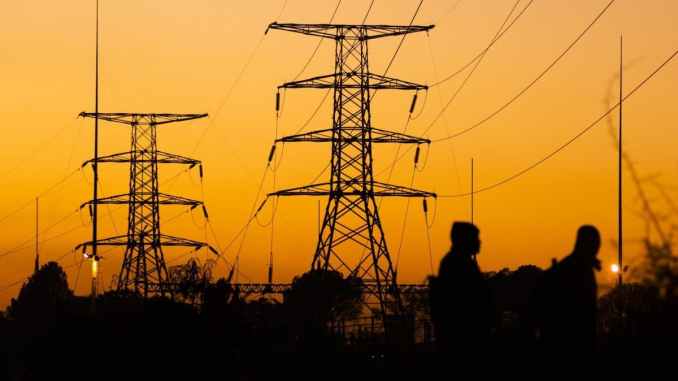After enduring weeks of protests, threats of strikes from organised labour, and opposition from over 30 workers unions, associations and civil society groups, government has decided to backtrack on its decision to implement a 15% Value Added Tax (VAT) on non-lifeline consumers of electricity at the residential level.
The proposed tax was estimated to increase electricity bills by up to 21%, factoring in the standard 15% VAT along with additional implicit taxes like a 2.5% GETFund Levy, 1% Covid-19 Levy, and an extra 2.5% National Health Insurance Levy.
Watch video: JoyNews' Isaac Kofi Agyei explains why government is introducing a 15% VAT on electricity
During the peak of the COVID-19 pandemic, government provided free water and electricity to lifeline consumers and subsidised 50% of bills for those outside the lifeline bracket, costing approximately $100 million.
However, less than a year after ending this assistance in 2021, the Akufo-Addo administration faced economic challenges, leading to a historic economic crisis and necessitating a $3 billion IMF program to stabilise the economy.
To reshape the energy sector and address debt burdens while ensuring a consistent power supply for industries, the government introduced measures, including quarterly tariff increments in 2023.
Before this, a 1% Covid-19 Recovery Levy was imposed on the supply of goods and services to generate revenue for pandemic-related expenditures.
Looking ahead to 2024, as part of its medium-term revenue mobilisation strategy, authorities proposed 12 new tax reforms to the IMF, including the imposition of a 15% VAT on power consumption.
The West African nation anticipates generating about $1.2 billion if these measures are successfully implemented this year.
An IMF tax diagnostic team, assessing Ghana’s VAT exemptions, concluded that the country was losing revenue equivalent to 2% of its GDP and recommended removing certain exemptions, which may have included the imposition of a 15% VAT on power consumption.
The Ghanaian energy sector accrues an annual debt of approximately $1 billion, with half of it attributed to excess capacity charges. The imposition of a 15% VAT on electricity consumption could lead to a decline in power consumption as consumers may become very particular about reducing their bills through energy conservation.
Ghana, which exports excess power to neighbouring countries, is exploring alternative solutions such as electric vehicles to minimise excess capacity charges. The government aims to shield lifeline consumers (those consuming a maximum of 30kWh per month) from the VAT impact.
However, it is anticipated that many Ghanaians may be priced out, especially since over 20% of the nation’s housing units are compound houses and the majority share a common metre, automatically exceeding the lifeline bracket. This could lead to a surge in illegal connections and power theft.
In his address on 7 February 2024, Vice President Bawumia, now the Flagbearer of the governing New Patriotic Party, promised alternatives to create fiscal space and potentially abolish controversial tax measures, including the electronic transaction levy, gambling tax, and the 15% VAT on power consumption by 2025.
While the government announced the suspension of the VAT implementation pending discussions with stakeholders like Organised Labour, it cannot unilaterally eliminate the tax.
Bilateral negotiations with the IMF are required for a complete removal of the proposed up to 21% VAT on residential power consumption.
To secure the Fund’s approval, the government must present an alternative revenue measure aligning with its $3 billion IMF programme revenue target for 2024 and beyond.
NOTE: $1 = GHS10
Follow Isaac Kofi Agyei on: Twitter (X): @isaackofiagyei and LinkedIn: Isaac Kofi Agyei
About the writer:
Isaac Kofi Agyei is a Data & Research Analyst/Journalist at JoyNews based in Accra, where he covers mostly finance, economics, banking, and politics across Ghana and West Africa, from detailed analytical reports on all key issues to debt crises to IMF programmes. He also serves as the data and research correspondent for SBM Intelligence, an Africa-focused market/security leader in strategic research, providing actionable analyses of West Africa’s socio-political and economic landscape. With his solid academic background in economics and statistics and additional training from credible institutions such as the UNDP, Afrobarometr, Ghana Statistical Service, and a host of others, Isaac has honed his skills in effective data storytelling, reporting, and analysis.

Isaac Kofi Agyei
Latest Stories
-
Man shot dead in Keri in latest incident of violence
2 hours -
Tema-Mpakadan Railway to open on October 1 – Transport Minister
3 hours -
NDC risks division if ‘Thank You Tours’ not properly managed – Dr Asah-Asante
3 hours -
Fashion risks going backwards on diversity, says ex-Vogue boss Edward Enninful
3 hours -
Malawi’s parties warned not to prematurely declare election victory
3 hours -
Egypt says 3,000-year-old bracelet was stolen and melted down
3 hours -
Togo leader’s sister-in-law arrested after calling for end to family rule
4 hours -
Leonardo DiCaprio on why his new film addresses ‘divisiveness in our culture’
4 hours -
Woman arrested in Tamale for allegedly possessing drugs
4 hours -
At least 10 dead in Lagos high-rise office building fire
4 hours -
Trump says TV networks ‘against’ him should ‘maybe’ lose license, after Kimmel suspension
4 hours -
Canada and Mexico agree to deepen ties amid Trump trade war
4 hours -
Facebook owner unveils new AI-powered smart glasses
5 hours -
Chipmaker Nvidia to invest $5bn in rival Intel
5 hours -
US firms pledge £150bn investment in UK as tech deal signed
5 hours

